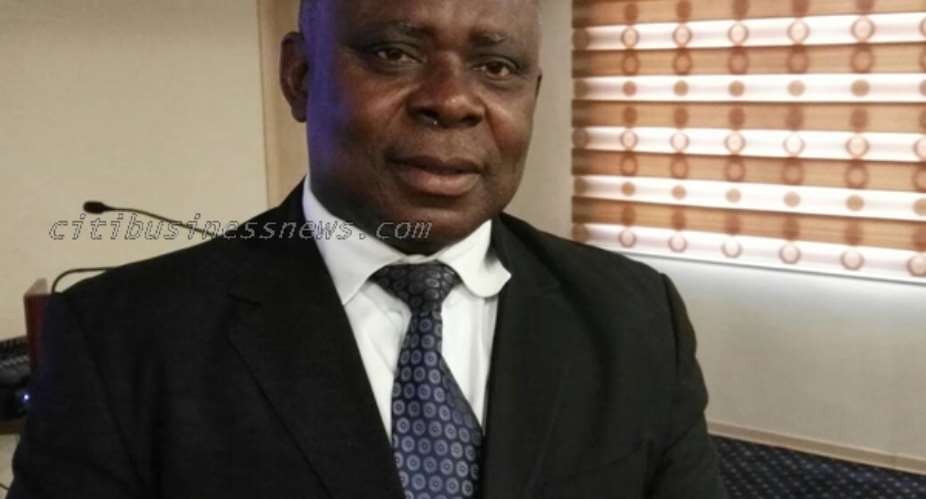The Fair Wages and Salaries Commission has disclosed to Citi Business News plans to halt the yearly review of the base salary of public sector workers on the Single Spine Salary Structure (SSSS).
According to the CEO of the Commission, Dr. Edward Kwapong, the decision should give value for money and link productivity with pay.
Being in existence for about eight years now, the public sector base pay of the Single Spine has been increased by between 10 and 20 percent.
Dr. Edward Kwapong, also explains that a change in the yearly review of the public sector base salary, should help reduce government's rising expenditure on public sector remuneration.
“Because of the rate of inflation, people say the real income has eroded. So there is the need to restore us back to the real wage we were making at the beginning of the year. The increase which will keep workers where they were before the end of the year is informed by figures from the Ghana Statistical Service,” he said.
“Going forward, we perhaps need a national dialogue to determine that we would not go for the yearly increments, but rather work harder to improve productivity for the gains to inform salary increases that will be granted by Government.”
The Single Spine which began in 2010, saw the base pay of GH¢3.42 increase to GH¢4.10 in 2011.
The 2011 figure of GH¢4.10 increased to GH¢4.48 in 2012.
In 2013, the base pay saw a significant growth from the 2012 figure to GH¢ 5.32. 2014, 2015, 2016 all saw significant increases.
The 11 per cent increase in the base pay of the 2017 figure of GH¢7.45, increases the 2018 base pay to GH¢8.27.
Dr. Edward Kwapong spoke at the launch of a Ghana Banking Human Resource Survey by ACREATY Ghana.
The Survey seeks to collate objective views about the banking sector for the purposes of planning and strategy.
The Regional Managing Partner of ACREATY Ghana, Elsie Appau explains that the exercise should improve standards in the banking industry.
“If you don't know where you are, how would you know where you want to be? Based on the lack of information in the banking sector it's difficult to know about the systems and structures of banks in the system. As a human capital company, we decided it is not enough to train and share the CV's of people who patronize our service. Rather we believe it's important to understand the opinions of the employees and their contribution to their banks. Based on that understanding we decided to help the banks who do not have the full capacity to conduct the surveys, which will end up informing their planning purposes.”
The evidence based data survey which is expected to focus on all 35 banks in the country will prioritize the protection of data for participating banks and will be a trusted source of information on employee performance, employee perception about a number of banking related topics like employee welfare and remuneration among others.





 'Kill whoever will rig Ejisu by-election' – Independent Candidate supporters inv...
'Kill whoever will rig Ejisu by-election' – Independent Candidate supporters inv...
 Ashanti Region: ‘Apologize to me for claiming I owe electricity bills else... – ...
Ashanti Region: ‘Apologize to me for claiming I owe electricity bills else... – ...
 Ghana is a mess; citizens will stand for their party even if they’re dying — Kof...
Ghana is a mess; citizens will stand for their party even if they’re dying — Kof...
 Internet shutdown an abuse of human rights — CSOs to gov't
Internet shutdown an abuse of human rights — CSOs to gov't
 Free SHS policy: Eating Tom Brown in the morning, afternoon, evening will be a t...
Free SHS policy: Eating Tom Brown in the morning, afternoon, evening will be a t...
 Dumsor: A British energy expert 'lied' Ghanaians, causing us to abandon energy p...
Dumsor: A British energy expert 'lied' Ghanaians, causing us to abandon energy p...
 What a speech! — Imani Africa boss reacts to Prof. Opoku Agyemang’s presentation
What a speech! — Imani Africa boss reacts to Prof. Opoku Agyemang’s presentation
 Dumsor: Tell us the truth — Atik Mohammed to ECG
Dumsor: Tell us the truth — Atik Mohammed to ECG
 Dumsor: Don't rush to demand timetable; the problem may be temporary — Atik Moha...
Dumsor: Don't rush to demand timetable; the problem may be temporary — Atik Moha...
 Space X Starlink’s satellite broadband approved in Ghana — NCA
Space X Starlink’s satellite broadband approved in Ghana — NCA
